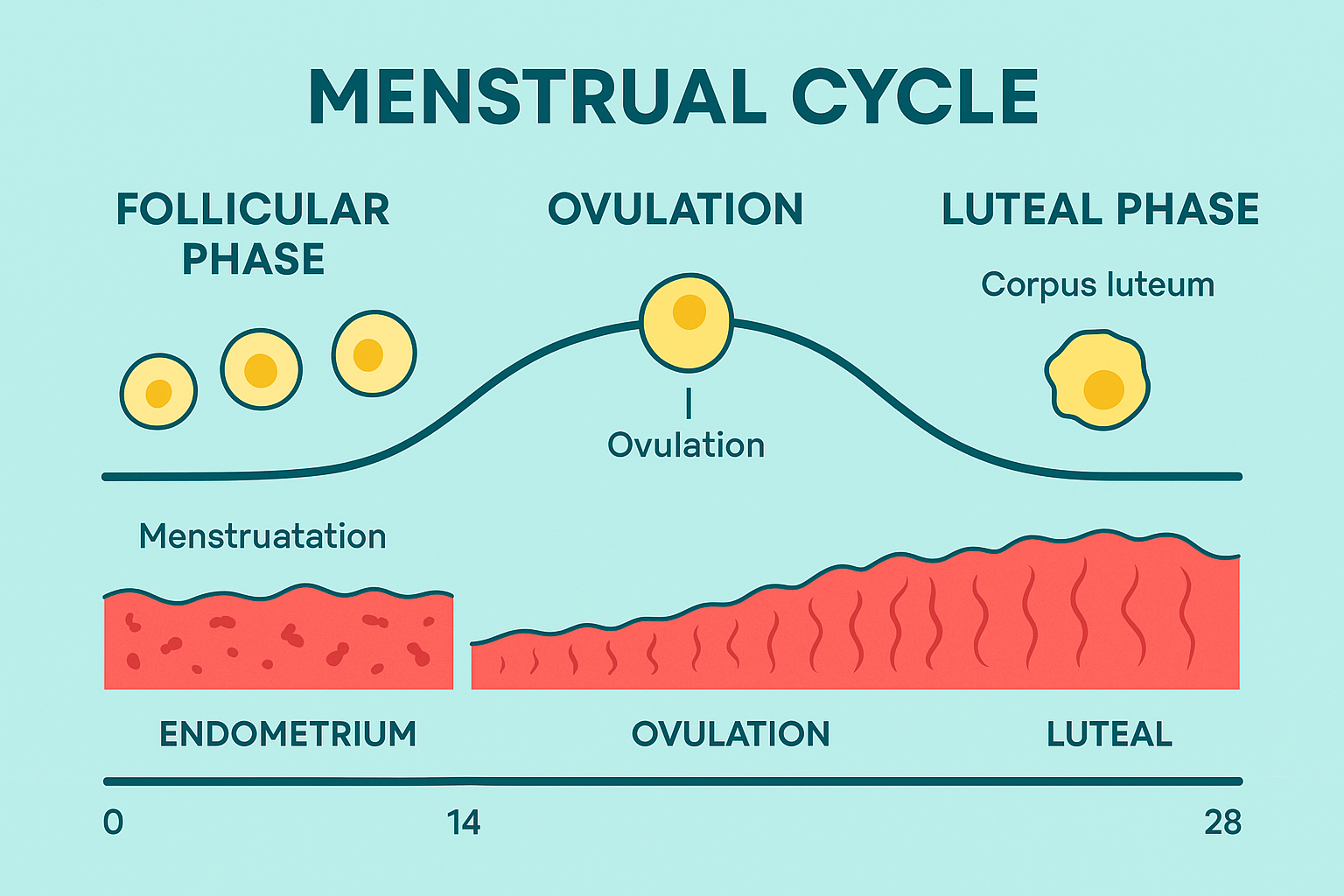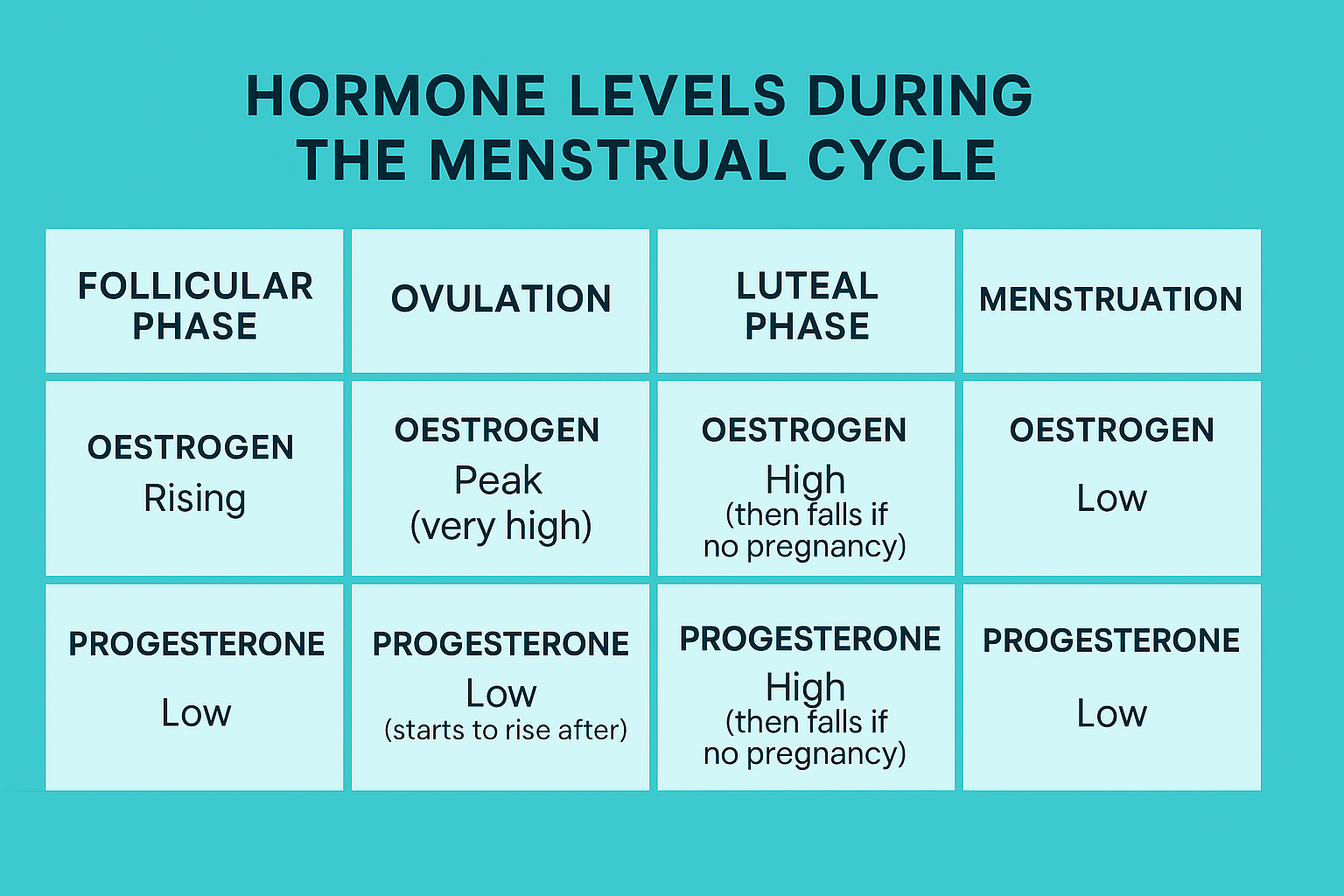Let’s face it, periods can be tough enough without all the extra symptoms some of us experience each month. If you’ve ever felt like a completely different person before your period, you’re definitely not alone. You might be dealing with PMS or even PMDD.
In this guide, we’ll walk through what PMS and PMDD are, how they feel, and what you can do to feel better. You deserve to feel understood and supported.
What Is PMS?
PMS stands for Premenstrual Syndrome. It’s a mix of physical and emotional symptoms that pop up in the week or two before your period starts in the Luteal phase of your cycle. Once your period begins, the symptoms usually go away. If you’re perimenopausal, you may find that what was managable, is now becoming a problem.
Common signs of PMS include:
– Sore breasts
– Bloating
– Headaches
– Feeling tired or sluggish
– Spots or acne
– Feeling more clumsy than usual
– Mood swings
– Feeling irritable or anxious
– Low mood or feeling teary
– Trouble sleeping or concentrating
What Causes PMS?
We don’t know all the answers yet, but PMS seems to be linked to the normal hormone changes that happen during your cycle, especially after ovulation (the luteal phase). Those shifting hormone levels can affect chemicals in your brain, like serotonin and GABA, which plays a big role in mood.
Cast your mind back to school when you (hopefully!) learnt about the menstrual cycle. The follicular phase occurs between your period and ovulation. The luteal phase occurs after ovulation to your period.

The theory of why PMS and PMDD happens is due to the shifting hormonal levels. High progesterone causes some women to feel awful in the lead up to their period. In these women, in perimenopause, the shifts become more erratic, and high progesterone with low oestrogen levels will make the problem worse.

In other women, the shiftt in oestrogen causes the problem. Too much oestrogen (also known as oestrogen dominance) can cause breast tenderness and changes in mood.
How Do I Know If I Have PMS?
A good way to find out is by tracking how you feel each day. Try tracking your symptoms for a couple of months. The app “Me v PMDD” can be really helpful for this: https://mevpmdd.com/
If you notice that things seem to flare up before your period and settle once it starts, that’s a strong clue.
How Can I Feel Better?
Great question! There are lots of things that can help, depending on how strong your symptoms are:
Lifestyle changes:
– Gentle, regular exercise (even walking helps!)
– Try carb cycling (more good quality carbs after ovulation in the luteal phase, more protein before ovulation ini the follicular phase)
– Reducing caffeine, alcohol, and sugar (sorry!)
– Prioritising sleep (the luteal phase is not the time for all-nighters)
– Managing stress with mindfulness or yoga
Medications:
– Painkillers like ibuprofen, especially when started a few days before your expected period
– Antidepressants (especially SSRIs) if emotional symptoms are severe
– Hormonal contraception or HRT (hormone replacement therapy) to stop ovulation occurring in an attempt to stop the swings of hormones that cause the symptoms
Natural support:
– Supplements like vitamin B6 or magnesium
– Herbal remedies like Agnus Castus, starflower oil and evening primrose oil (talk to your GP first, especially if you take other things!)
What Is PMDD?
PMDD stands for Premenstrual Dysphoric Disorder. Think of it as a much more intense form of PMS. It’s not just a bad mood; it can seriously impact your mental health and daily life.
PMDD symptoms may include:
– Intense mood swings
– Feeling very low or hopeless
– Anger or irritability
– Anxiety or panic attacks
– Feeling out of control
– Trouble sleeping or extreme fatigue
– Painful periods or physical discomfort
– Even suicidal thoughts
What Causes PMDD?
Scientists believe PMDD may be caused by how some people’s brains react to hormonal changes. Your hormone levels may be normal, but your body responds differently—especially when it comes to mood-regulating brain chemicals like serotonin and GABA.
Getting a Diagnosis
To get diagnosed with PMDD, it’s important to track your symptoms over at least two menstrual cycles. This helps your GP spot the pattern and rule out other causes.
What Helps with PMDD?
There are several treatment options that can make a big difference:
Talking therapies:
– Cognitive Behavioural Therapy (CBT)
– Counselling for emotional support
Medical treatments:
– SSRIs (Serotonin Reuptake Inhibitors: a type of antidepressant) taken cyclically in the luteal phase or continuously
– Hormonal contraception or HRT to stop ovulation
– GnRH injections (used in severe cases to put you into a chemical menopause)
– Surgery to remove the ovaries (very rarely, and only if nothing else works)
You Are Not Alone ❤️
Whether you’re dealing with PMS or PMDD, know that you are not alone—and you are *not* imagining it. These conditions are real and valid, and support is out there.
Support groups like NAPS or mental health charities like Mind UK can offer advice, tools, and a listening ear.
When to Talk to a healthcare professional
It’s a good idea to speak to a doctor if:
– Your symptoms stop you from living your usual life
– You feel very low, anxious, or angry before your period
– You’re worried you might have PMDD
– You need help figuring out what’s going on
Keeping a simple symptom diary can really help your GP see the full picture.
Final Thoughts
Your menstrual health matters. If you’re struggling each month, it’s not just “in your head”—you deserve to feel good and supported. PMS and PMDD are treatable, and with the right care, you can take back control of your month.
Helpful Resources
🌿 National Association for Premenstrual Syndromes (NAPS): https://www.pms.org.uk
🧠 Mind UK on PMDD: https://www.mind.org.uk/information-support/types-of-mental-health-problems/premenstrual-dysphoric-disorder-pmdd/what-is-pmdd/
🩺 NICE Clinical Knowledge Summary: PMS: https://cks.nice.org.uk/topics/premenstrual-syndrome/
Until next time,
Dr Nikki
